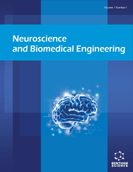Abstract
Our previous study have found that deficits in areas of spatial learning, memory, planning and problem solving lead to abnormal processing, which results in a decline of tactile angle discrimination in patients with Alzheimer’s disease (AD). However, certain issues regarding the previous apparatus have been identified: 1) Angle stimuli need to be replaced rapidly, which leads to the experimental time being longer, and 2) The apparatus was not a portable and automated device. In the present, we developed a novel automated device to be used for clinical purposes that assesses cognitive function in regard to tactile senses. Then, a tactile angle discrimination experiment was conducted to investigate the cognitive characteristics of four groups: young subjects (n=20), normally aged elderly (NC) (n=16), Mild Cognitive Impairment (MCI) patients (n=16) and AD patients (n=14). The results indicated that we decreased the examination time to more than half of what the examination time with the previous apparatus was. We found that AD patients’ ability to discriminate between tactile angles was significantly poorer than NC subjects. We expect the device to be one of the platforms that will be used for the early detection of AD, which was previously difficult to perform due to the lack of international standards.
Keywords: Alzheimer's disease, cognitive function deficits, tactile angle discrimination, working memory.
Graphical Abstract
 9
9

